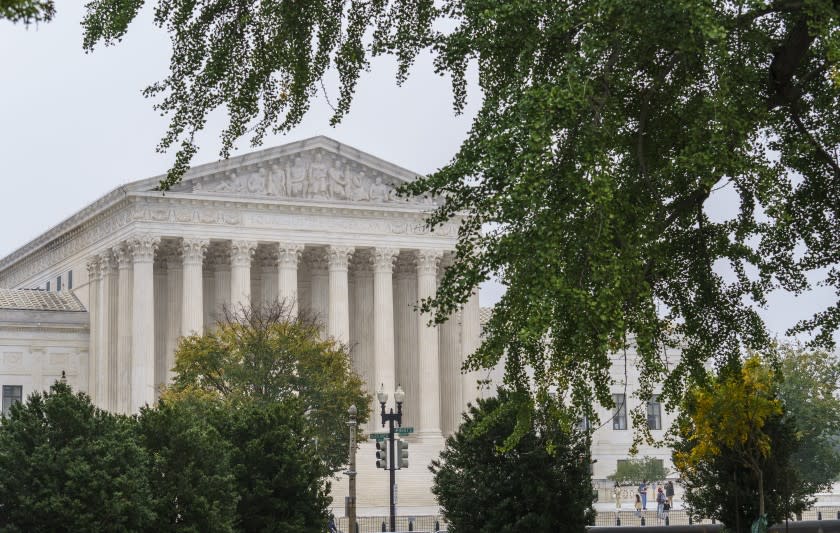Supreme Court agrees to decide whether gun owners have right to carry a weapon in public

The Supreme Court agreed Monday to hear a major gun-rights claim and decide whether the 2nd Amendment gives law-abiding individuals a right to carry a loaded handgun when they leave home, regardless of local restrictions.
At issue are laws in California, New York and six other states that strictly limit "concealed carry" permits to those who can show they have a "special need" or "good cause" to be armed. In Los Angeles, New York and other cities, these permits are rarely granted.
"The time has come for this court to... reaffirm the citizens’ fundamental right to carry a handgun for self-defense," Washington attorney Paul D. Clement said in his appeal on behalf of the New York State Rifle & Pistol Assn.
The case could be the most significant test of the 2nd Amendment in a decade. In 2008, the court ruled for the first time that the Constitution gives individuals a right to have a gun for self-defense, and it struck down a Washington, D.C., ordinance that prohibited all private possession of handguns. Two years later, the court threw out a similar handgun ban in Chicago.
Since then, the justices have steadily turned away appeals that challenged other gun laws, including measures that limited who could obtain a license to carry a gun in public. But the three newest justices — all Trump appointees — have indicated in the past they favor stronger protections for gun rights under the 2nd Amendment.
California law says gun owners may apply for a concealed-carry permit with a local law enforcement agency, and one may be granted if a sheriff or police chief determines the applicant is of "good moral character" and has "good cause" to carry a loaded handgun.
The Los Angeles Police Department says, "good cause exists if there is convincing evidence of a clear and present danger to life or of bodily harm" to applicants or their families.
"Because of the restrictive practices in some California cities and counties, the most recent data show that there are only 120,582 concealed carry license holders in all of California. That is a mere 0.39% of the adult population of California," the court was told by several law enforcement groups, including the California Sheriffs Assn.
In New York, about 1.2% adults hold "carry" licenses. By contrast, the neighboring state of Pennsylvania has a "shall issue" policy to give permits to eligible residents who apply, and about 14% of its adults have a license to carry a weapon, the group said. They said 28% of Alabama adults have carry permits, the highest percentage in the nation.
The other states with the more restrictive "may issue" policies are Hawaii, New Jersey, Maryland, Massachusetts, Delaware and Rhode Island.
The New York case began when Robert Nash and Brandon Koch, who live near Albany, applied for a concealed carry permit. Nash cited "a string of recent robberies in his neighborhood." But both were turned down because they "did not demonstrate a special need for self-defense that distinguished [them] from the general public.”
They sued along with the state rifle association claiming a violation of their rights under the 2nd Amendment. They lost before a federal judge and the 2nd Circuit Court, which held the state may restrict who carries a concealed weapon in public.
The court will hear arguments in the fall in the case of New York State Rifle & Pistol Assn. vs. Corlett.
This story originally appeared in Los Angeles Times.

